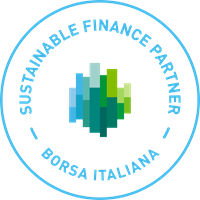Attention to environmental and social sustainability has taken center stage in public discussions and strategic choices adopted by companies.
Along with consideration of the environmental impacts of products and organizations, an essential factor in the environmental debate has emerged over the years: the communication of information regarding sustainability; an integral part of corporate social responsibility.
In this content we will explore a phenomenon that affects this type of communication, namely greenwashing: its causes, effects, and strategies to counter it.
In addition, we will delve into the concept of corporate social responsibility, analyzing how companies can authentically commit to sustainability and social welfare, going beyond mere declarations of intent and demonstrating a true commitment to positive change.
Greenwashing practices and related risks
Greenwashing takes the form of distorting and misleading actions through which an organization or business tries to present itself as more sustainable and compliant with regulations and sustainable practices than it actually is.
It is conduct that falls in a gray area, between misleading advertising and unethical practices related to Corporate Social Responsibility, and may involve information pertaining to:
- False statements about the environmental impact of products and the organization;
- Misuse of certifications and eco-labels on labels;
- Corporate Social Responsibility (CSR) initiatives publicized for the sole purpose of diverting attention from unsustainable practices;
- Exaltation of sustainable qualities of products or their life cycle that is untrue or intended to mask the environmental impacts of their production, use, and disposal;
- Lack of clarity on the allocation of investments in sustainable projects;
- Use of misleading images or messages on digital platforms to promote a company’s “green” image, along with the creation of misleading narratives through digital marketing strategies.
Engaging in such conduct is a damaging move for the corporate image and the organization as a whole, significantly affecting the trustworthiness of the company, in the eyes of stakeholders and end consumers.
Damage to corporate image is not alone among the risks associated with greenwashing; there are also:
- Any reports, and administrative and financial penalties from public authorities or Certifying Bodies;
- The possible exclusion from funding calls reserved for low-impact enterprises;
- The decline in consumer interest and thus sales;
- The loss of potential and current partnerships.
To prevent a company from adopting greenwashing practices and incurring these risks, it is necessary to adopt an approach that clearly and transparently communicates and conveys the company’s ESG commitment.
The role of corporate social responsibility in combating the phenomenon of greenwashing
Companies that integrate ESG factors into business strategies are aware of the importance of Corporate Social Responsibility.
Corporate Social Responsibility (CSR) helps counter the phenomenon of greenwashing by promoting business practices that are authentically consistent with respect to Environmental, Social and Governance criteria.
In fact, the factors that fall under CSR include:
- Transparency and accountability: companies that invest in ESG initiatives are usually more transparent about the environmental and social practices and impacts of their activities;
- Measurement and monitoring: companies committed to CSR implement systems for measuring, monitoring and reporting their environmental and social performance, following the standards set by national and international standards, such as the CSR Directive.
These tools provide reliable and verifiable data that can be used to demonstrate the real impact of products, organizations and corporate governance; - Stakeholder Involvement: companies that promote their social responsibility actively involve stakeholders in corporate decision-making, including consumers, investors, local communities, and nongovernmental organizations.
Involvement that promotes transparency, accountability, the circulation of information by steering away all related risks.
How to avoid greenwashing with an ESG communication plan
The phenomenon of greenwashing is the subject of internationally renowned legislative initiatives, such as the recent European Green Claims Directive.
As much as these conducts are now known to most companies, avoiding incurring these practices is not easy: the risk of transmitting information in an inappropriate way is high, both with reference to technical and more generic content.
A good strategy to counteract greenwashing is to build an ESG communication plan: transparent, comprehensive and in line with the sustainable goals your company pursues.
Together we can devise a communication plan capable of conveying the company’s commitment in a way that is clear and appropriate for your audience, while avoiding the risk of providing misleading information.


